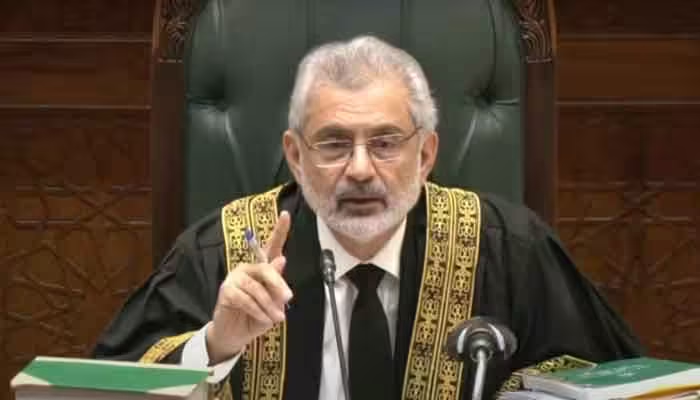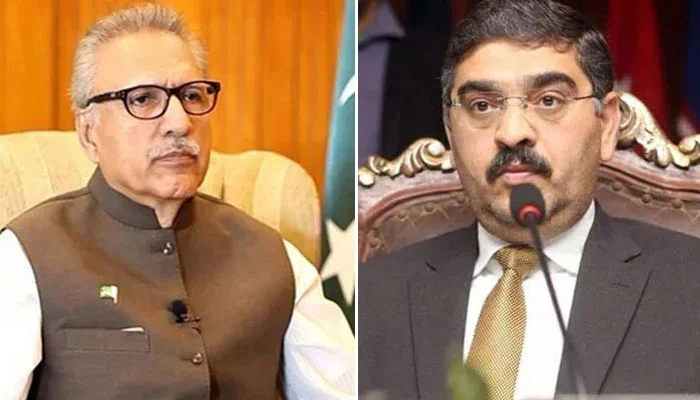In a significant hearing regarding the handling of the Dams Fund, the Supreme Court of Pakistan, led by Chief Justice Qazi Faiz Isa, raised serious concerns over the constitutional and legal legitimacy of the fund’s management. The case, which revolves around the legality of the Supreme Court holding the Dams Fund and the broader implications of such practices, has brought attention to several key issues relating to financial governance, constitutional adherence, and the role of the judiciary in overseeing state affairs.
Background of the Dams Fund Case
The Dams Fund was established in 2018 under the leadership of the former Chief Justice of Pakistan, Saqib Nisar, with the aim of raising funds for the construction of major water reservoirs in the country, such as the Diamer-Bhasha and Mohmand Dams. The fund became a national initiative, with significant public donations, and even contributions from various government institutions, including the Pakistan Army.
However, as time progressed, questions began to arise about the handling of these funds, particularly whether the Supreme Court, as an institution, could legally maintain and manage the funds. The current Chief Justice, Qazi Faiz Isa, highlighted the need to reassess the legality of the arrangement and whether it aligns with constitutional principles.
Chief Justice Qazi Faiz Isa’s Remarks on Constitutional Violation
During the hearing, Chief Justice Qazi Faiz Isa expressed his concerns, stating that “many things are done in Pakistan without the constitution and law.” This remark set the tone for the entire proceeding, as the bench sought to understand whether the Supreme Court had overstepped its constitutional bounds by maintaining and managing the Dams Fund. The Chief Justice emphasized the importance of adhering to the constitution, stating that judicial decisions should never override the constitutional framework.
The Chief Justice’s comments reflect a growing concern over the practice of establishing judicial oversight over financial matters, which many argue should be handled by government agencies rather than the judiciary.
Additional Auditor General’s Report and Findings
The Additional Auditor General, during the proceedings, informed the court that the investigation into the Dams Fund had revealed no irregularities in the funds or their markup. However, the Chief Justice questioned the appropriateness of the title of the account, pointing out that judicial decisions should not be given precedence over the constitution and law.
The Additional Auditor General also informed the court that the fund currently holds more than PKR 23 billion, with PKR 11 billion coming from direct contributions and over PKR 12 billion earned through markup. This raised further questions, as the Chief Justice asked how and why the government is paying itself markup on these funds.
The answer provided by the Additional Auditor General was that the markup is given on money that the government uses through T-bills, a standard financial practice. However, Chief Justice Isa appeared skeptical, calling the situation “an eye-opener” and questioning whether it is appropriate for the Supreme Court to keep such funds under its control.
Legal Concerns Over Supreme Court’s Authority
The central legal question that arose during the hearing was whether the Supreme Court has the authority to manage such a fund. The Chief Justice asked whether the funds should be moved to a government public account, such as the Water and Power Development Authority (WAPDA). The WAPDA lawyer, Saad Rasool, informed the court that they had submitted 19 implementation reports since 2018 regarding the progress of the dam construction.
The Chief Justice, however, stated that the court was not reviewing these reports but rather examining the legality of the Supreme Court’s involvement in keeping the funds. He questioned the practice of courts asking for progress reports on construction projects, noting that many actions taken by the courts in Pakistan appear to have no constitutional or legal basis.
Role of the Implementation Bench
A key issue raised during the hearing was the role of the implementation bench. WAPDA’s lawyer argued that while the constitution does not explicitly mention an “implementation bench,” there is no restriction against its creation either. Chief Justice Isa disagreed, stating that he had taken an oath to uphold the constitution, not to enforce judicial decisions that lacked constitutional backing.
Former Attorney General Khalid Javed Khan supported this argument, mentioning that the concept of an implementation bench was first introduced during the Karachi riots case. However, the Chief Justice maintained that the judiciary must always operate within the bounds of the constitution, warning against practices that could undermine constitutional supremacy.
Future of the Dams Fund
As the hearing came to a close, the Supreme Court adjourned the case, leaving the fate of the Dams Fund uncertain. The court is expected to make a decision on whether the fund should remain under the control of the judiciary or be transferred to a more appropriate government entity, such as WAPDA. This decision will likely have far-reaching implications for future judicial involvement in financial and development matters in Pakistan.
The hearing underscores a broader debate within Pakistan about the role of the judiciary in governance. While the judiciary has often stepped in to fill gaps left by ineffective governance, Chief Justice Qazi Faiz Isa’s remarks highlight the risks of overreach, particularly when judicial actions may contravene constitutional principles.
This case serves as a reminder of the importance of upholding the rule of law and the constitution, ensuring that all actions taken by state institutions, including the judiciary, are firmly rooted in legal and constitutional authority.



